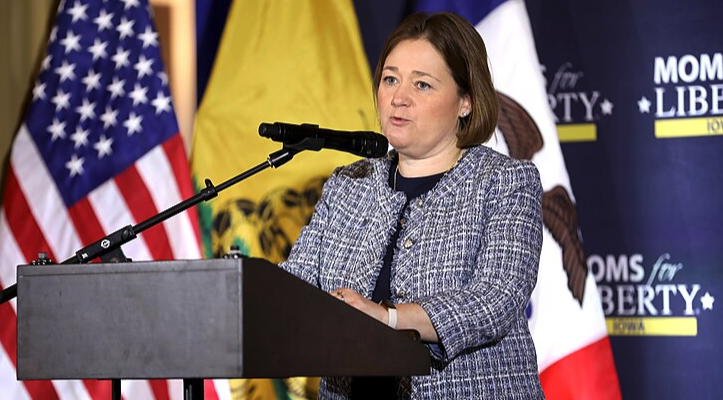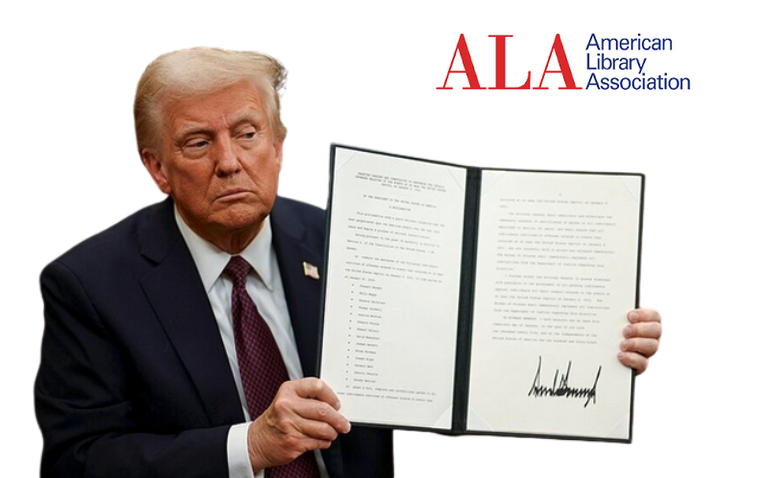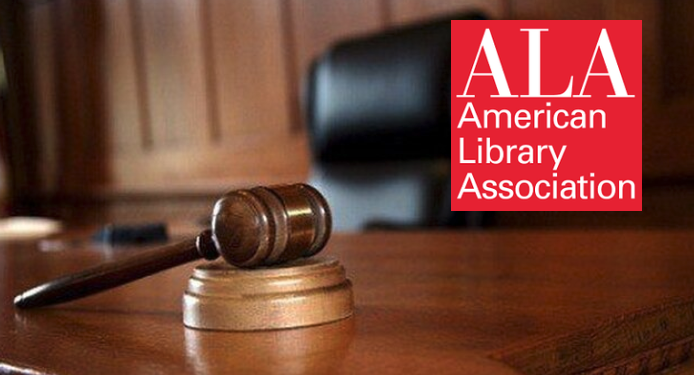Court Blocks Iowa Book Banning Law—Again
In a major win for freedom to read advocates, a federal judge has once again temporarily blocked the book banning provisions of Iowa law SF 496.

For a second time in 16 months, a federal court has temporarily blocked the enforcement one of the most controversial book banning laws in the country, Iowa’s SF496, finding that the law’s provision banning books from Iowa schools that contain sexual content likely to be unconstitutional.
The highly awaited ruling is a major victory for freedom to read advocates. It comes after the U.S. Court of Appeals for the Eighth Circuit in August 2024 vacated judge Stephen Locher’s December 2023 injunction temporarily blocking the law’s sweeping book ban provisions, and instructed Locher to more fully assess whether the plaintiffs’ facial challenge to the constitutionality of SF 496 was proper under a test set out in a 2024 Supreme court decision in Moody v. Netchoice. In his emphatic 40-page decision, Locher found the facial challenge to be proper.
“Under the legal standard applicable to cases involving statewide restrictions on books in bookstores or public libraries, the results of the NetChoice analysis are clear and unequivocal: the book restrictions in SF 496 are facially unconstitutional,” Locher wrote in his March 25 decision. “SF 496 makes no attempt to evaluate a book’s literary, political, artistic, or scientific value before requiring the book’s removal from a school library and thus comes nowhere close to applying the ‘obscenity’ standard that is typically used to determine the constitutionality of statewide book restrictions. The result is the forced removal of books from school libraries that are not pornographic or obscene.”
Signed by Iowa governor Kim Reynolds in May 2023, SF 496, among its provisions, bans books with depictions of sex, written or visual, from school libraries. In response, Iowa school districts have pulled hundreds of titles from their shelves—more than 3,400, according to one study by the Des Moines Register—including a disproportionate number of books that contain LGBTQ characters, historical figures, or themes.
The law prompted two separate legal challenges in November 2023: Lambda Legal and the ACLU of Iowa filed the first suit to challenge the law, calling it “a clear violation of public school students’ First Amendment right to speak, read, and learn freely.” Days later, Penguin Random House and the Iowa State Education Association, along with bestselling authors Laurie Halse Anderson, John Green, Malinda Lo, and Jodi Picoult, also sued, arguing that SF 496’s book banning provision use “protecting children from pornography” as a pretext to deny student access “to books with ideas and perspectives disliked by state authorities.”
On December 29, 2023, Locher delivered his first 49-page opinion and order blocking the book banning provisions of the law, which he found to be “vague” and “wildly overbroad.”
In his ruling this week, Locher once again found the law to be unconstitutionally overbroad.
Even if one interprets the law “as narrowly as reasonably possible,” Locher wrote, the record shows that “dozens (if not hundreds) of books that have tremendous pedagogical value” have been banned from Iowa schools without the state showing a “substantial and reasonable governmental interest” in seeking their removal, “except, at most, in a few instances.” Thus, “under the NetChoice balancing analysis,” Locher concluded, “the unconstitutional applications of the law far outweigh the constitutional ones.”
While Locher acknowledged that blocking “a duly enacted state law" is “a serious and significant remedy,” he found that that the constitutional injuries alleged warrant an injunction.
“Educators have removed hundreds of books due to SF 496, thus depriving students of the ability to read those books, and authors and publishers of the ability to reach their intended audiences through those books,” Locher held. Furthermore, the law puts librarians and educators “at risk of termination, loss of licensure, or other consequences if they are deemed to have violated the book restrictions in SF 496,” even though, Locher observed, the record shows that school districts have long been successful at “keeping pornographic and obscene materials out of school libraries and restricting access to materials that are unsuitable based on students’ age.”
Lawyers say the ruling was not unexpected. Despite Iowa attorney general Brenna Bird claiming victory when the appeals court reversed and remanded Locher’s injunction last year, lawyers were quick to note that the appeals court decision also affirmed the plaintiffs' standing to sue, and also rejected the state's core legal argument: that the placement and removal of books from public school libraries and classrooms is government speech and thus not subject to First Amendment scrutiny. On remand—with the standing question resolved and with the state’s government speech defense effectively knocked out—lawyers agreed that the plaintiffs’ chances of success of winning another injunction appeared strong.
In his March 25 ruling, Locher, citing the Eighth Circuit's decision, again rejected the state's "government speech" argument, concluding that SF 496 "does not
regulate student speech or constitute 'government speech' but instead tries to impose statewide restrictions on what has traditionally been the prerogative of local officials regarding the contents of school libraries."
In a statement, Iowa attorney general Brenna Bird once again vowed to continue the legal fight. “This commonsense law makes certain that the books kids have access to in school classrooms and libraries are age-appropriate,” Bird said. “I’m going to keep on fighting to uphold our law that protects schoolchildren and parental rights.”
Meanwhile, reps for plaintiff Penguin Random House also vowed to continue the fight. “We applaud the Court's decision to return thousands of books to Iowa school libraries," reads the PRH statement. "We will continue to defend the rights of authors, students, librarians, and educators.”
Locher’s decision to temporarily block the law comes a month after the Iowa Board of Education finally approved new rules for school staff on how to comply with the law, rules which are set to take effect on April 9. Those rules confirm that school staff who did not remove books that included sexual content would have faced discipline.
Though the book banning provisions of SF 496 are now temporarily blocked, the case continues, with another trip to the Eight Circuit court of appeals likely to come.


